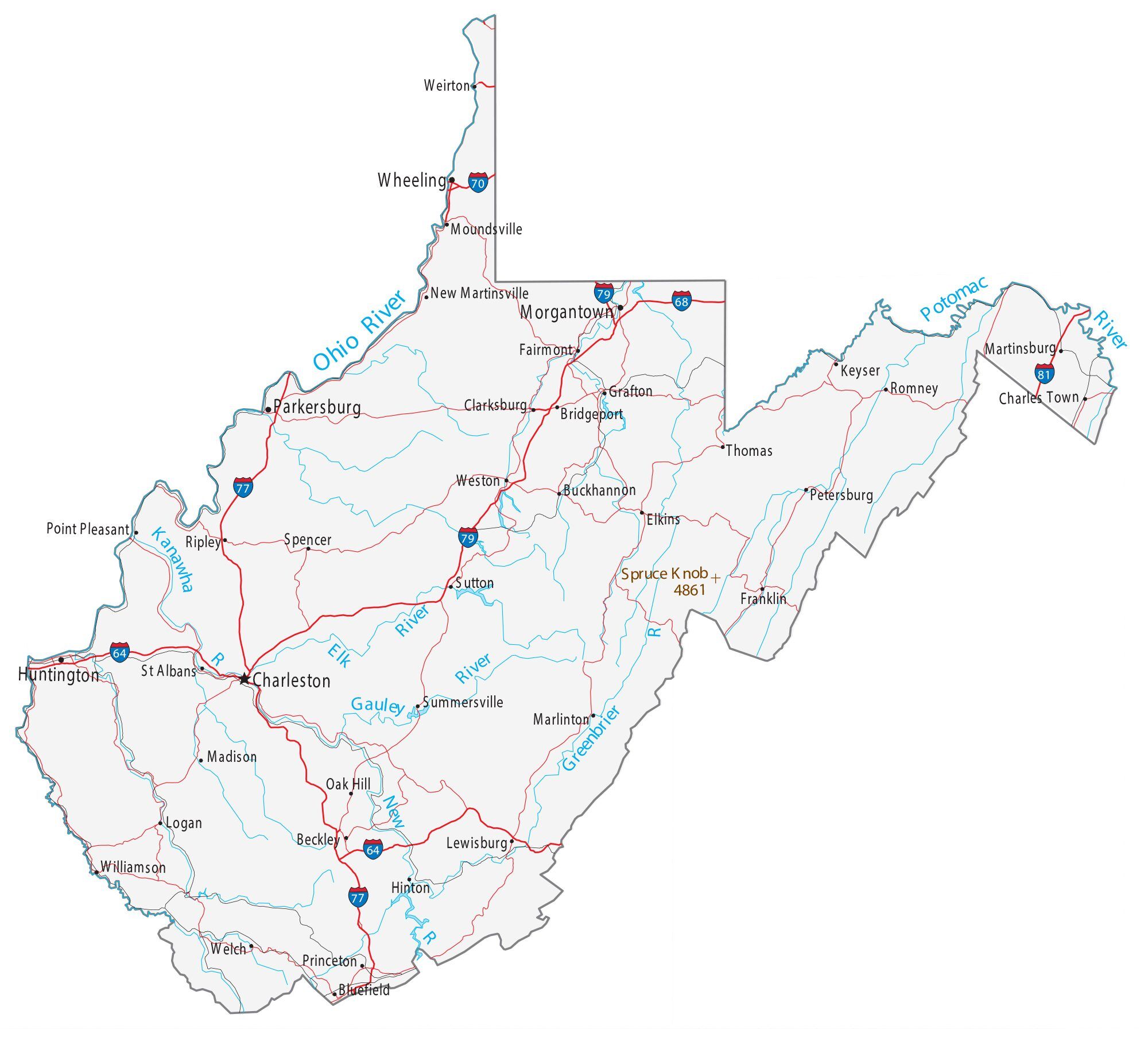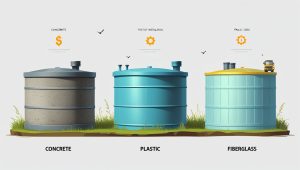Understanding septic tank regulations is essential for homeowners in West Virginia to maintain compliance with the state’s environmental standards. This guide explores the regulations around septic tank installation, maintenance, and wastewater management in West Virginia. It also covers permit requirements, costs, and how to find certified professionals. By following these regulations, homeowners can ensure their septic systems operate efficiently and safely, protecting both their property and the environment.
Table of Contents
- Installation Permits for Septic Systems in West Virginia
- Septic Tank Size and Placement Guidelines
- Wastewater Disposal Regulations
- Maintenance and Pumping Recommendations
- Legal Compliance and Penalties
- Cost Information for Septic System Services in West Virginia
- Local Resources and Contact Information
- Frequently Asked Questions About West Virginia Septic Tank Regulations
Installation Permits for Septic Systems in West Virginia
Before installing a septic tank in West Virginia, homeowners must obtain a permit from the appropriate state or local health department. This ensures that the installation meets West Virginia septic tank rules and regulations, which are designed to protect public health and the environment. The permit process typically involves an inspection of the site and a review of the proposed septic system plan.
Permit Requirements
A permit is required for all new septic system installations and major repairs or replacements of existing systems. Homeowners must submit an application to the local health department or environmental agency, along with site plans that include detailed information about the septic tank’s location, size, and the proposed drain field placement.
Cost of Permits
The cost of septic system permits in West Virginia can vary based on location and the complexity of the project. Typically, permit fees range from $50 to $300. Homeowners should check with the local health department for specific costs in their area. Additional fees may be required for inspections, site evaluations, or for submitting revised plans.
Who Needs a Permit
A permit is mandatory for new septic tank installations, large repairs, and major changes to an existing system. Homeowners making small repairs or routine maintenance may not need a permit but should consult with local authorities to ensure compliance.
Septic Tank Size and Placement Guidelines
Proper sizing and placement of a septic system are crucial for ensuring its long-term functionality. West Virginia’s septic regulations include guidelines on tank sizes, setbacks, and drain field requirements.
Sizing Rules
The size of the septic tank is generally based on the number of bedrooms in a home or the estimated daily water usage. For a typical home in West Virginia, a septic tank should have a minimum capacity of 1,000 gallons. However, larger homes with multiple bathrooms or increased water usage may require a larger tank. Consult local health department guidelines for specific requirements.
Placement Guidelines
Septic tanks must be placed a minimum distance from property boundaries, wells, and water sources, as specified by West Virginia septic system regulations. Typically, tanks must be at least 10 feet from property lines and 50 feet from wells or streams. The drain field, which is responsible for treating wastewater, must be installed in an area with suitable soil and adequate drainage. Local health departments often require a site evaluation to ensure the land is suitable for the system.
Wastewater Disposal Regulations
West Virginia wastewater management laws ensure that septic systems are designed to handle and dispose of wastewater safely, protecting the state’s water resources. Homeowners must adhere to these laws to avoid contamination of drinking water or the surrounding environment.
State Wastewater Disposal Laws
West Virginia’s on-site wastewater laws require that septic systems be designed and installed in a way that effectively treats and filters wastewater before it is released into the soil. The state mandates that septic tanks be used in conjunction with drain fields that allow treated water to safely percolate into the ground. Regular inspections are essential to ensure the system is functioning correctly.
Environmental Protections
West Virginia’s environmental quality standards emphasize protecting the state’s groundwater and surface water. Septic systems must be designed to prevent pollution, with regulations in place to limit the release of contaminants into local ecosystems. Homeowners who fail to follow proper wastewater disposal practices may face fines and other penalties.
Maintenance and Pumping Recommendations
Septic systems require regular maintenance to function effectively. West Virginia septic tank regulations recommend certain maintenance practices, including periodic pumping, inspections, and system repairs.
Pumping Guidelines
Septic tanks should be pumped every 3 to 5 years, depending on the size of the tank and the number of people in the household. Regular pumping ensures that solids do not accumulate and clog the system. Failure to pump a septic tank regularly can lead to costly repairs and potential system failure. Homeowners should consult with certified septic professionals to determine the appropriate pumping schedule for their system.
Maintenance Requirements
In addition to pumping, homeowners should have their septic systems inspected periodically. The West Virginia Health Department recommends that homeowners schedule a professional inspection every 3 to 5 years. During the inspection, the tank’s condition, the drain field, and other components are checked for any signs of wear or malfunction.
Legal Compliance and Penalties
Following West Virginia sewage disposal standards is essential for maintaining compliance with state regulations. Homeowners who fail to meet these standards may face fines or penalties. It’s important to understand the consequences of non-compliance and take steps to prevent violations.
Potential Fines and Penalties
If a septic system is not installed, maintained, or operated according to West Virginia’s regulations, the homeowner may face fines. These penalties can be substantial, particularly if the violation results in environmental contamination. Homeowners may also be required to repair or replace the septic system at their own expense. Local health departments and environmental agencies typically oversee enforcement of septic tank rules in WV.
Unique Environmental Protections
West Virginia is home to diverse natural resources, including numerous lakes, rivers, and streams. As a result, the state has stringent protections in place to safeguard water quality. Violations of wastewater management laws that result in pollution or contamination of local water sources can lead to serious legal consequences. Homeowners should always consult the West Virginia environmental protection guidelines to ensure their systems are compliant.
Cost Information for Septic System Services in West Virginia
Septic system installation and maintenance can be costly. Understanding the typical costs associated with these services can help homeowners budget appropriately for septic system care.
Installation Costs
The cost of installing a new septic system in West Virginia can range from $3,000 to $8,000, depending on the complexity of the installation and the size of the system required. Factors such as soil conditions, system type, and permit fees can influence the final cost.
Pumping and Maintenance Costs
Pumping costs in West Virginia typically range from $250 to $500, depending on the size of the tank and the location of the property. Inspections generally cost between $100 and $300. Regular maintenance, including inspections and repairs, can add up over time but is crucial for ensuring the septic system remains in good working order.
Permit Fees
As mentioned earlier, septic system permits in West Virginia typically cost between $50 and $300. These fees are generally based on the complexity of the project and local regulations.
Local Resources and Contact Information
Homeowners in West Virginia should be aware of local resources to ensure compliance with septic system regulations.
State Agencies and Departments
For septic system regulations and permit information in West Virginia, the primary authority is the West Virginia Health Department. Homeowners can contact their local health departments for guidance on septic tank installation, inspection, and maintenance. The West Virginia Department of Environmental Protection (DEP) is also involved in wastewater management and environmental regulations, including septic system approvals.
You can reach these agencies for more detailed information or to apply for permits:
These departments provide resources and guidelines to ensure compliance with the state’s environmental and wastewater management standards.
Certified Septic Service Providers
Homeowners should only work with certified septic professionals to ensure their system is installed and maintained correctly. The West Virginia Health Department provides a list of certified service providers on its website.
Conclusion
Following West Virginia septic tank regulations is crucial for homeowners to ensure their septic systems are functioning properly and in compliance with the state’s environmental and health standards. By obtaining the necessary permits, adhering to septic tank size and placement guidelines, and scheduling regular maintenance, homeowners can avoid costly repairs and help protect the environment. Always consult with certified professionals and local health departments to stay informed about the latest regulations and best practices.
Frequently Asked Questions About West Virginia Septic Tank Regulations
Do I need a permit for installing a septic system in West Virginia?
Yes, septic systems in West Virginia require permits before installation. The permit process includes filing an application with the local health department. Fees for permits vary, with a typical installation fee around $30 for registration. After approval, a registration seal is issued, valid for the life of the system. Failure to follow this process may result in civil penalties WVDEP.
What are the septic tank size requirements in West Virginia?
In West Virginia, the size of a septic tank depends on the number of bedrooms in a home or the number of people using the system. For residential properties, the minimum size typically starts at 1,000 gallons, with larger systems required for more occupants. Tank size and drain field placement are critical to ensuring proper wastewater treatment and to avoid system failures.
How often should I pump my septic tank in West Virginia?
It is generally recommended to pump septic tanks every 3-5 years in West Virginia, though the specific frequency can depend on household size, the tank’s size, and how much wastewater is used. Regular maintenance helps prevent clogs, backups, and system malfunctions Septic.com
What are the environmental regulations for septic systems in West Virginia?
West Virginia enforces strict regulations regarding wastewater treatment to protect groundwater quality. The Groundwater Protection Act mandates proper wastewater management to prevent contamination of water sources. Septic systems must adhere to these regulations, ensuring that untreated wastewater does not leak into local groundwater WVDEP.
What happens if I don’t follow West Virginia septic system regulations?
Failing to comply with septic system regulations in West Virginia can lead to significant fines and penalties. These include civil and criminal penalties for improper installations, lack of registration, or failure to maintain the system properly. Violators may face financial and legal consequences WVDEP.
For more detailed information on septic systems in West Virginia, including permits, fees, and regulations, you can visit the official West Virginia Department of Environmental Protection (DEP) website.
If you’re unsure about the septic service providers or need to hire professionals, the West Virginia Department of Environmental Protection and other local resources have listed qualified companies across the state.
Cost of Replacing a Septic Tank: Complete 2025 Price Breakdown
Directory | South Carolina Septic Service Providers : Best Professionals
Installing a Septic Tank: Legal Steps
Septic Tank Materials: Concrete, Plastic, or Fiberglass – A Complete Comparison
Do You Need a Permit to Install a Septic Tank?
Monthly Septic Maintenance Plans






